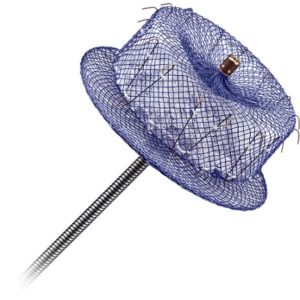
A study presented at the last late-breaking trial session of the 2016 Transcatheter Cardiovascular Therapeutics (TCT) meeting (29 October-2 November, Washington, DC, USA) indicates that the Amplatzer Amulet left atrial appendage occluder device (St Jude Medical), for prevention of stroke in patients with atrial fibrillation, is associated with high implant success rates and a low rate of adverse effects.
The Amulet observational study enrolled 1,073 patients between June 2015 and September 2016 at 64 clinical sites in Europe, the Middle East, Asia, Australia and South America. Of those enrolled, 1,060 patients had device implantation – giving a technical success rate of 98.8%. Major adverse events within seven days of implant included ischaemic stroke (0.3%), pericardial effusion requiring intervention (0.5%), embolisation (0.1%), and bleeding (0.9%). There were three deaths (0.2%) that occurred within seven days of attempted implant, two of which were adjudicated as procedure or device related, and one as unrelated to the device. At one to three month follow-up, the majority of patients were on antiplatelet therapy only and the CoreLab analysed results of transoesophageal echocardiography (TEE) showed a closure rate of 99%.
Study presenter David Hildick-Smith (Sussex Cardiac Centre, Brighton and Sussex University Hospitals in Brighton, UK), said: “These results indicate that the Amplatzer Amulet is safe and associated with low rates of periprocedural and early adverse events, as well as demonstrating high closure rates. In addition, antiplatelet therapy appears to be an effective treatment strategy post-implantation in the short-term. Additional long-term data is necessary to confirm these promising early findings.”













